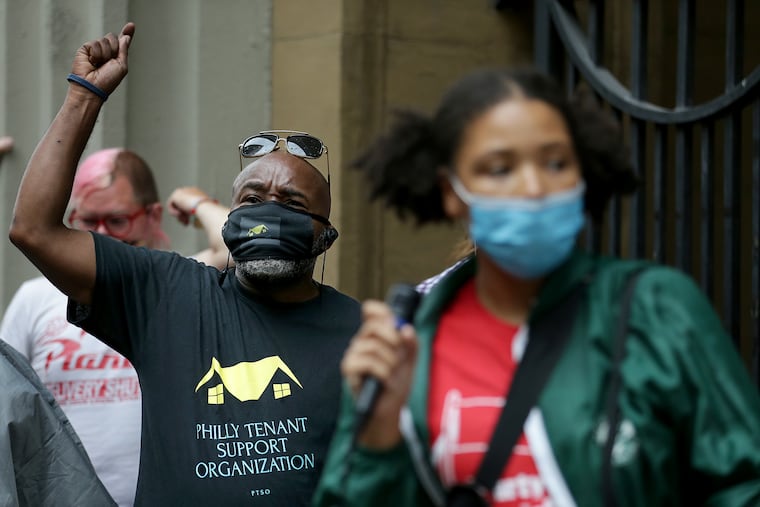More must be done to help Black and brown Philadelphians in debt | Opinion
Research conducted by Community Legal Services and by Pew shows that low- and middle-income Black and Hispanic households are often hardest hit by the debt crisis.

Debt is an issue for many Philadelphians, and it’s time to talk about it.
Large amounts of debt can lead to financial crisis, housing instability, and intergenerational financial vulnerability. In Philadelphia, people are burdened by credit card debt, high-cost loans, utility bills, and rental housing costs; many are caught in the debt trap, a cycle of re-borrowing to keep up with what, for them, are unaffordable payments. And for residents caught in this cycle, it can feel like there is no escape.
Although many Philadelphians are in debt—often because they must borrow to pay for basic necessities—there hasn’t been a larger conversation about who is most affected and the impact debt has had on their lives. It’s time to start that dialogue.
Research conducted independently by Community Legal Services of Philadelphia (CLS) and by The Pew Charitable Trusts shows that low- and middle-income Black and Hispanic households are often hardest hit by debt. In Municipal Court, where companies that buy consumer debt and try to collect on it for a profit file the majority of small claims cases, Black Philadelphians are overrepresented as defendants compared with their share of households in the city. Pew data shows that although 91% of plaintiffs were represented by lawyers in Philadelphia small claims cases filed from 2013 to 2018, only 12% of defendants had an attorney—and that defendants have better outcomes with a lawyer.
» READ MORE: Financial institutions should repair their trust gap with Black communities | Opinion
Pew’s research highlighted that a third of small claims cases were dismissed without service—meaning the defendant was never notified of the case—and that nearly 50% of cases among defendants without an attorney ended in default judgments. Conversely, only 17% of cases involving defendants who had counsel resulted in default judgments against the defendants. Judgments in small claims cases follow people for decades, freezing their bank accounts and forcing them to avoid opening new ones; draining their home equity; and sometimes blocking the loan modifications they need to prevent foreclosure. Defendants also report falling behind on utility payments and other bills, as well as going without food, transportation, or other basic needs in order to pay the judgments against them.
Eviction court cases can also create debt for families, negatively affect credit scores, and lead to homelessness. CLS found that from March to December 2020, landlords filed court actions to evict nearly 3,000 Philadelphia families, primarily in Black and Hispanic communities, even though some eviction actions were stayed because of COVID-19 moratoriums; these numbers are likely to increase when the moratoriums are lifted. And because there is currently no process to remove an eviction from a tenant’s record, these judgements often limit tenants’ future rental options, locking them out from safe, quality housing for years to come.
» READ MORE: Evicted without warning: How Philly’s troubled system leaves some tenants blindsided and locked out of their homes.
Many Philadelphians are struggling to pay other housing related costs such as utilities. When those bills go unpaid, utility companies or the city can initiate court proceedings. At the end of 2020, more than 151,000 residential PGW customers and nearly 140,000 residential PECO customers were behind on their bills and at risk of service termination. And more than 72,000 PWD customers could have had their water turned off if the city’s public health moratorium weren’t still in place.
As COVID-19′s health and economic effects continue to take a toll on the country, and as the existing moratoriums on evictions and utility shut-offs begin to expire, Philadelphians need to make plans for navigating their debt. And we need to be thinking collectively about policies that can help.
To initiate the conversation, CLS and Pew are inviting the community to learn more about their research during a Facebook Live event on Tuesday, March 2, from 5:30 p.m. to 6:30 p.m., moderated by Amadee Braxton of WURD-AM. In addition, Philadelphians who want to talk about their experiences with debt are invited to participate in smaller, private conversations immediately after the public discussion. For more information, including how to register, go to facebook.com/clsphila.
Deborah Freedman is the executive director of Community Legal Services of Philadelphia. Elinor Haider is the director of The Pew Charitable Trusts’ Philadelphia research and policy initiative.